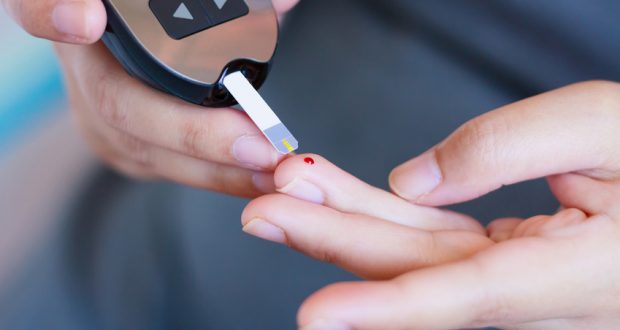You may think you’re doing everything possible to lower your blood sugar. While essential, avoiding sugar is only one part of managing diabetes. There are many more ‘secret’ strategies we should be using on our journey to better health. Read on to take control of your diabetes and enjoy more stable blood sugar for good!
Firstly, the age-old adage is true – knowledge is power. Learn as much as you can about diabetes and its effects on the body. That information will enable you to make the best choices for your health.
Speaking of knowledge, its important to work closely with your healthcare team. Talk with your physician about the information you’ve learned. For example, you’ve read how regular exercise can help lower blood sugar. You’d like to start an exercise regimen, but aren’t sure where to begin. Speak with your physician about your desired exercise plan so he or she can make sure you’re good to go.
Your physician may also recommend a consultation with a dietician or nutritional counselor. These professionals are clinically trained in how food affects the body, and blood glucose levels. If the opportunity to consult with a dietary professional becomes available, embrace it!
When trying to figure out nutrition, the sheer volume of available information is overwhelming. When it comes down to it, we are what we eat. Literally! The body’s cells are made up of the foods we consume. Food is fuel. (That doesn’t mean it can’t be enjoyable and taste amazing!)
There are three main components to building a healthy meal. Fat + fiber + protein = stable blood sugar. Meals should include a balance of all three. Following a high-fat, high-fiber, moderate-protein, low-carb diet has been found to have a dramatic, positive effect on blood sugar.
Sources of healthy fat include avocado, nuts, fatty fish like salmon, even full-fat dairy. Monounsaturated and polyunsaturated fats are essential in lowering cholesterol and blood pressure. Fat is not the enemy of health. It’s actually the key to obtaining and maintaining health!
The only fats to be concerned about are trans fats. Trans fats are very dangerous and should be avoided. However, by eliminating deep fried and processed/packaged foods from one’s diet, encountering trans fats becomes far less likely.
Let’s move on to fiber, the unsung hero of diabetes management. Fiber has long been valued for gut regularity. Its positive effects for diabetics, however, are a more recent revelation. Fiber stabilizes blood glucose levels by slowing the processing and absorption of sugars into the bloodstream. This makes fiber an absolute must in a diabetic’s diet.
Good sources of fiber include artichokes, avocados, beans and lentils, nuts, veggies, fresh berries, and quinoa. Notice anything else about those high-fiber foods? That’s right! They are all lower on the glycemic index, and have their fiber contents to thank for it.
Protein is also very important when eating healthfully. Sufficient protein intake is absolutely essential to body function. However, it is crucial to consume protein in appropriate portions, and in the right combinations with healthy fats and fiber.
High protein consumption was popularized by the Atkins diet many years ago. However, research has since found that a diet high in protein is not the way to go. The human body actually converts excess protein into glucose. This means that when we consume too much protein, the body processes the extra as it would carbs… or sugar. Sad, but true.
Good sources of protein include grass-fed beef, wild caught seafood, along with free-range poultry and eggs. Full-fat Greek yogurt, nuts and seeds, even broccoli are fantastic sources of non-meat protein.
You’re going to need that fuel for our next blood sugar-stabilizing secret. Get moving… literally! Regular physical activity contributes nearly countless positive effects on your health. Especially for those with diabetes. It helps your body make the best use of insulin and glucose. In fact, exercise can reduce blood sugar levels for up to 24 hours after working out!
Regular physical activity lowers blood pressure, improves circulation, and helps control cholesterol levels. This reduces risk of heart attack and stroke. Exercise also helps to strengthen muscles and bones, along with burning extra body fat. It’s a great way to boost energy levels and reduce stress, too! Research has shown that even a short walk each day can make a major difference in your health.
You likely knew that nutrition and exercise have huge impacts on diabetes. Did you know sleep quality and stress levels do, too? When the body does not get enough sleep, it’s response mimics insulin resistance. Not only does lack of sleep make you cranky, it also contributes to higher blood sugar.
Avoiding stress is impossible. For diabetics, however, its very important to manage. Cortisol, a “stress hormone” floods the body when we experience stress.
When cortisol is released, the body’s cells either absorb extra glucose for immediate energy, or direct the cells to store it for later. Frequent high cortisol levels contribute to insulin resistance and higher blood sugar levels over time. Getting consistent, quality sleep while reducing stress may seem near to impossible, but both are absolutely essential to stabilizing blood sugar.
Our final secret to managing diabetes is acknowledging that you cannot (and should not) attempt to go it alone. Surround yourself with a good support system. Family, friends, healthcare team, support groups, online chat communities, etc. Anyone who can be a source of encouragement and accountability.
Managing blood sugar and healing diabetes shouldn’t be thought of as a secretive, complicated process. By balancing the foods we eat with regular physical activity, quality sleep, managing stress, and a maintaining good support system, stable blood sugar is achievable. Yes, lower blood sugar and better health require effort. The healthy, happy life we all desire is the reward, and that’s quite a good return on investment!
Sources:
https://www.webmd.com/diabetes/manage-blood-sugar-18/prevent-sugar-spikes
https://www.heart.org/en/healthy-living/healthy-eating/eat-smart/fats/trans-fat
https://www.health.com/syndication/walking-after-eating-good-for-you
 Diabetic Kitchen
Diabetic Kitchen





Recent Comments